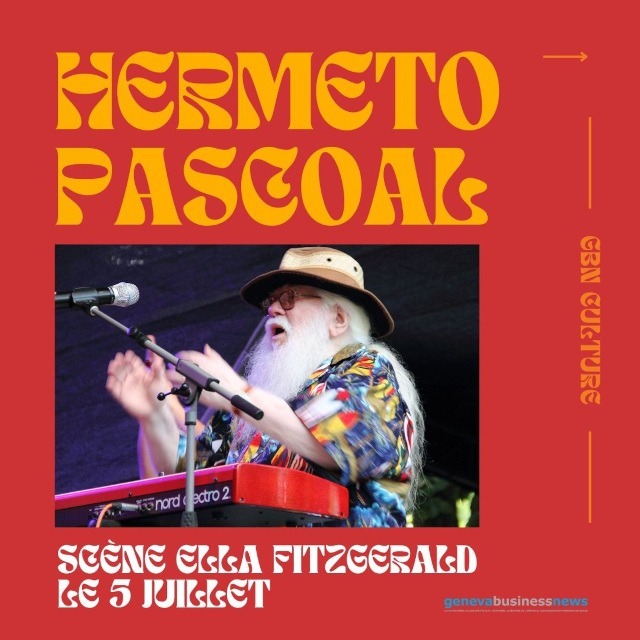

Cliquez ici pour lire la version française
On the 5th of July, the Ella Fitzgerald Stage will welcome Brazilian composer, arranger and multi-instrumentalist Hermeto Pascoal.
Hermeto Pascoal is a colourful character and self-taught musician who has invented his own musical language. Like the captain of a ship bound for unexplored musical lands, he takes his musicians and audience through sonic spaces that blend jazz, MPB and avant-garde experimentation. Everything he touches becomes music. Under his spell –Hermeto is nicknamed the sorcerer, "o bruxo"–, his beard becomes a string instrument, pigs start to sing, water changes into rhythm and kettles whistle.
Born on June 22, 1936 in Lagoa da Canoa, Hermeto Pascoal was nurtured by the sounds of nature from an early age. He was fascinated by the world of sound around him and drew inspiration from it. By the age of 10, he already played the flute and the accordion. He formed a duo with his brother and performed at local festivities. He later learned to play the piano.
Hermeto often moved from town to town and from one band to another, meeting many musicians along the way, including Edu Lobo and Elis Regina. His first album, as Pernambuco do Pandeiro e seu Regional’s accordionist, was released in 1958. This was soon followed by other groups and recordings: Conjunto Som 4, Sambrasa Trio and, in 1967, Quarteto Novo, whose rich sound and harmonies, captured on their eponymous album, provided a springboard for his career and that of Airto Moreira.
In 1969, Hermeto travelled to the USA to record his first album. While there, he met Miles Davis and recorded two of his own compositions with him for the Live-Evil album (1971). Davis called him "the most impressive musician in the world".
From then on, Hermeto Pascoal's visibility and international career took off. The albums Hermeto (1970), A Música Livre de Hermeto Pascoal (1973) and Slaves Mass (1977) revealed to the world the sonic magician he had become. He was no longer a simple piano and flute player but had turned into an accomplished composer, arranger, producer and multi-instrumentalist.
Although Brazilian folk music (forró, baião, frevo, maracatu, among others) has had a big influence on his work, and even though some critics see him as a typically Brazilian musician, Hermeto Pascoal describes his art as "universal music" because it draws on diverse influences and knows no stylistic boundaries. The universal nature of his approach is also reflected in his Calendário do Som (1999) score book project, for which he composed one song a day for a year to honour the birthdays of every person in the world.
Blurring the lines between classical and popular music, between noise and music, between musical instruments and simple objects, his concerts are events that leave plenty of room for improvisation, theatre and humour.
By the same author: Plácido Domingo au Victoria Hall: 13 juin
Photo credit: Emmanuel Doffou; Schorle, CC BY-SA 3.0, via Wikimedia Commons